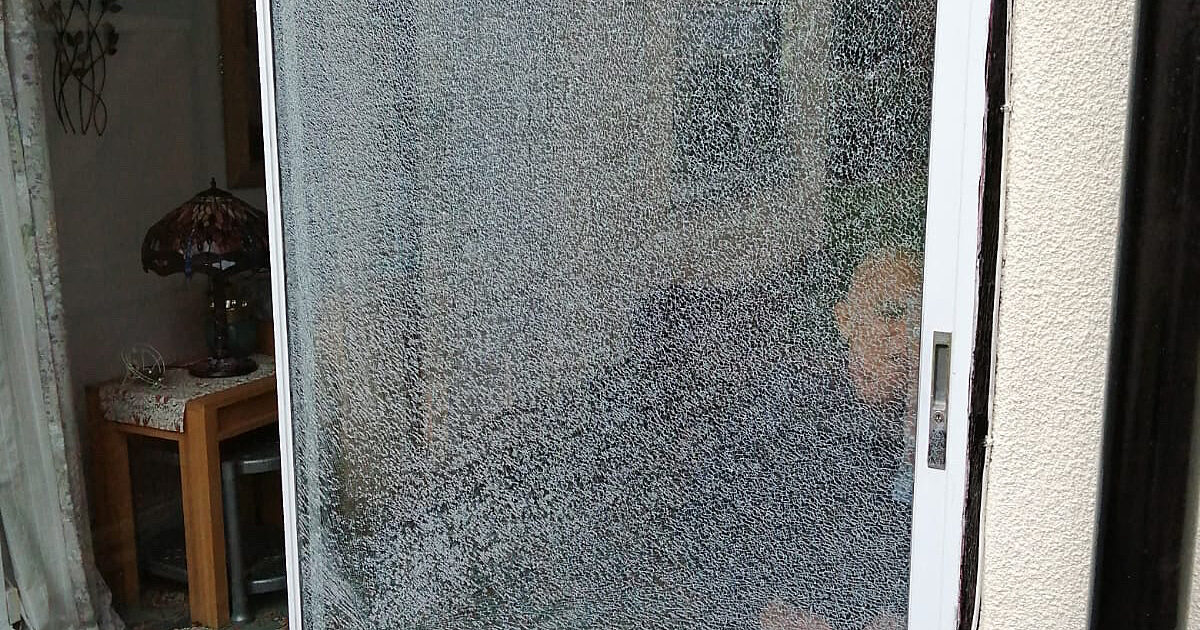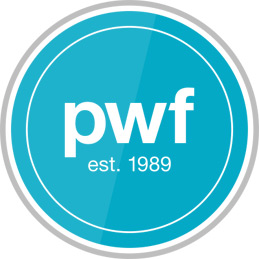When Glass Turns Against You: The Hidden Dangers of Spontaneously Shattering Patio Doors
It’s a calm Sunday morning. The kettle’s boiling, birds are chirping, and your children are playing in the garden. Then—bang!—a deafening crash echoes through your home. You rush in and discover your pristine patio door has shattered into a thousand tiny fragments. No ball hit it, no one touched it. It simply exploded.
Welcome to the mysterious world of spontaneously breaking toughened glass.

Spontaneous Shatttered Toughened Glass
The Promise and Peril of Toughened Glass
Toughened, or tempered, glass is a marvel of modern engineering. It's up to five times stronger than regular glass and, when it breaks, it shatters into blunt granules instead of jagged shards. This makes it ideal for applications where safety and strength matter car windows, shower doors, and yes, patio doors.
But that strength is also part of its Achilles heel.
Unlike laminated glass, which has a layer of plastic between two panes, toughened glass is made by heating the pane to over 600 degrees C and then rapidly cooling the outer surfaces. This creates internal stresses that make the glass incredibly tough but also incredibly sensitive to certain flaws.
So Why Do They Shatter on Their Own?
Spontaneous breakage in patio doors is real and surprisingly common. While it may feel like something out of a haunted house or a bad dream, science offers several grounded explanations:
1. Nickel Sulphide Inclusions: The Invisible Time Bomb
The leading culprit in unexplained breakages is a tiny, metallic impurity known as nickel sulphide (NiS). These inclusions are microscopic and can form during the glass manufacturing process. Under normal conditions, they're harmless. But when glass is toughened, nickel sulphide particles change phase, expanding over time - sometimes months or even years after the glass has been installed.
As these particles swell, they push against the internal structure of the glass. Eventually, the tension becomes too much, and the pane explodes with no warning and no apparent cause.
2. Edge Damage: The Silent Saboteur
Even a tiny chip or crack along the edge of a toughened glass panel can spell doom. These imperfections, often invisible after installation, can slowly propagate under pressure. Since toughened glass is under constant compressive and tensile stress, any flaw on the edge acts as a weak point, ready to unleash catastrophic failure at the slightest trigger - a minor vibration, a temperature shift, or even just time.
3. Thermal Stress: Hot Sun, Cold Shadows
Imagine one section of your glass door basking in direct sunlight while another part remains cool in the shade. This uneven heating can create thermal stress, especially in large panes like patio doors. While toughened glass is designed to resist temperature fluctuations, repeated cycles of expansion and contraction can lead to internal fractures, particularly if there are existing micro-cracks or imperfections.
4. Poor Installation Practices
Sometimes, the blame lies not with the glass but with how it's been installed. If a patio door is mounted too tightly within its frame, or if it lacks proper clearance for thermal expansion, pressure can build up over time. This stress, compounded by daily use, can eventually push the glass to its breaking point.
Incorrect alignment, warped frames, and improper fixings are all potential red flags. Unfortunately, these issues are often hidden behind the frame or manifest long after installation - when the warranty has expired.
5. Building Movement and Vibration
Your house isn't as stationary as it seems. Buildings shift and settle over time. Roads rumble with passing traffic. Doors slam. Children bounce balls. These vibrations, minor as they may be, can cause cumulative stress on glass over time. While a single vibration won't usually do it, repeated minor impacts can chip away at a weak point until one day - crack!
Are You at Risk?
If you have large patio doors made of toughened glass, you might feel understandably nervous after reading this. But don't panic - millions of such panes are installed every year with no issues. Still, it's wise to understand your risk factors:
- Was your patio door installed more than 5 - 10 years ago? Older panes are more likely to suffer from accumulated damage.
- Do you notice chips, scratches, or marks near the glass edges? Even minor flaws can be early warning signs.
- Have you experienced extreme weather or temperature swings recently? These can hasten thermal stress fractures.
- Do your doors face prolonged direct sunlight? Uneven heating might be increasing stress on the pane.
If you're ticking several of these boxes, a preemptive inspection by a glazing professional might be in order.
What Can Be Done to Prevent It?
While spontaneous glass breakage can't always be prevented, especially when nickel sulphide is involved, there are some practical steps that reduce the risk:
1. Heat Soaking
This post-manufacture process involves reheating the toughened glass to 290 degrees C and holding it at that temperature to encourage any nickel sulphide inclusions to expand and trigger breakage in a controlled environment. Though it adds to cost, heat soaking is the gold standard for reducing the risk of spontaneous failure in architectural glass.
If you're ordering new patio doors, especially large ones, ask the supplier if their glass is heat soaked.
2. Choose Laminated Toughened Glass
If safety is paramount, consider laminated toughened glass for your patio doors. This type combines the strength of toughening with the security of lamination, ensuring that even if the pane breaks, it remains held together by an internal layer. It's ideal for high-traffic family homes or areas with temperature extremes.
3. Ensure Expert Installation
Invest in professional installers who understand the tolerance requirements and allow for proper movement and drainage around the pane. The quality of installation can make all the difference in prolonging the life and performance of your doors.
4. Regular Maintenance
Check your doors regularly for signs of wear or damage. Look for cracks along the frame, visible chips in the glass, or misaligned panels. Spotting issues early can prevent dangerous breakages later on.
When It Happens: What to Do
If your patio door spontaneously breaks, stay calm and prioritize safety:
- Keep children and pets away from the glass area immediately.
- Wear gloves and shoes when clearing up, even though the shards are not razor-sharp.
- Contact your installer or manufacturer especially if your doors are still under warranty.
- Check your home insurance some policies cover accidental or unexplained glass breakage.
The Bottom Line
Spontaneous breakage of toughened patio doors is dramatic, unsettling, and inconvenient but it;s not a mystery. From tiny nickel sulphide inclusions to poor installation, the causes are scientifically explainable and, in many cases, preventable.
Understanding the risks and taking proactive steps like insisting on heat-soaked glass, choosing laminated options, and ensuring expert installation can dramatically reduce the chance of a patio door turning your living room into a glass-strewn mess.
Because when it comes to the comfort and safety of your home, glass should be your friend not your foe.













Great post! Glazing is such an important aspect of both aesthetics and energy efficiency in modern buildings. It’s amazing how the right glass choices can completely transform a space while also improving insulation and reducing noise. Thanks for sharing!